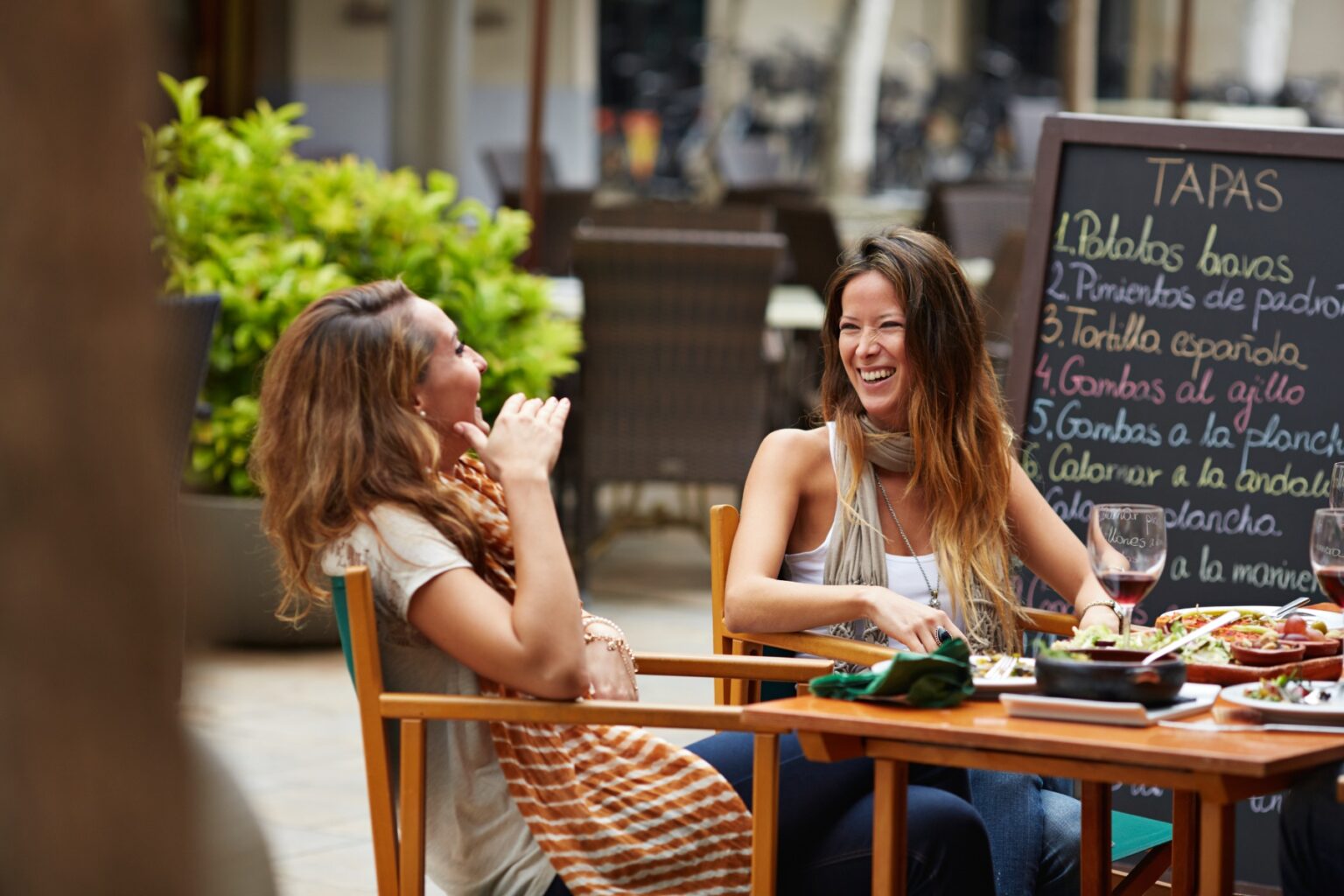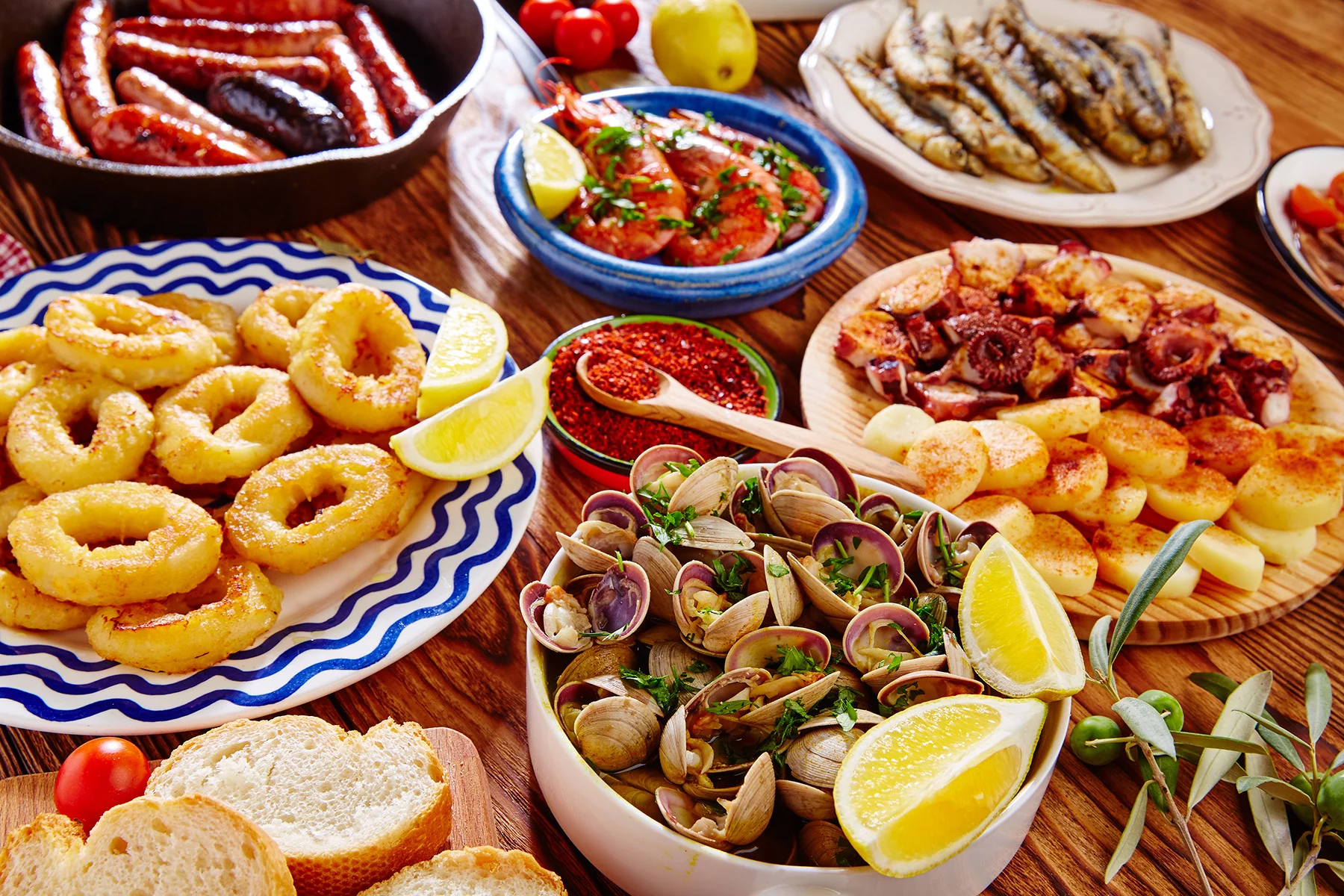Spain is known for being quite a relaxed country with a distinct culture that has influenced many different parts of the world. However, like anywhere else, there are norms and practices in Spanish society that will be unfamiliar to new arrivals in the country. Moreover, there are strong regional identities and differences that influence how people behave and interact.
So, to help you fit in with the locals, this article on Spanish etiquette outlines the following:
- What is Spanish culture like?
- Spanish gender roles and norms
- How do Spanish people meet and greet?
- Conversation and communication
- Typical Spanish clothing
- What is the dining etiquette in Spain?
- How do Spanish people socialize?
- Dating and relationships in Spain
- What occasions do Spanish people celebrate?
- Spanish business culture
- Shopping and services in Spain
- Regional variations
- Useful resources
What is Spanish culture like?
Spanish culture derives from a wide range of historical influences. This includes that of ancient Rome which provides a strong cultural and linguistic basis for modern Spanish society. Catholicism has played an important role in Spain for many centuries and the country became entirely Catholic in the 15th century.
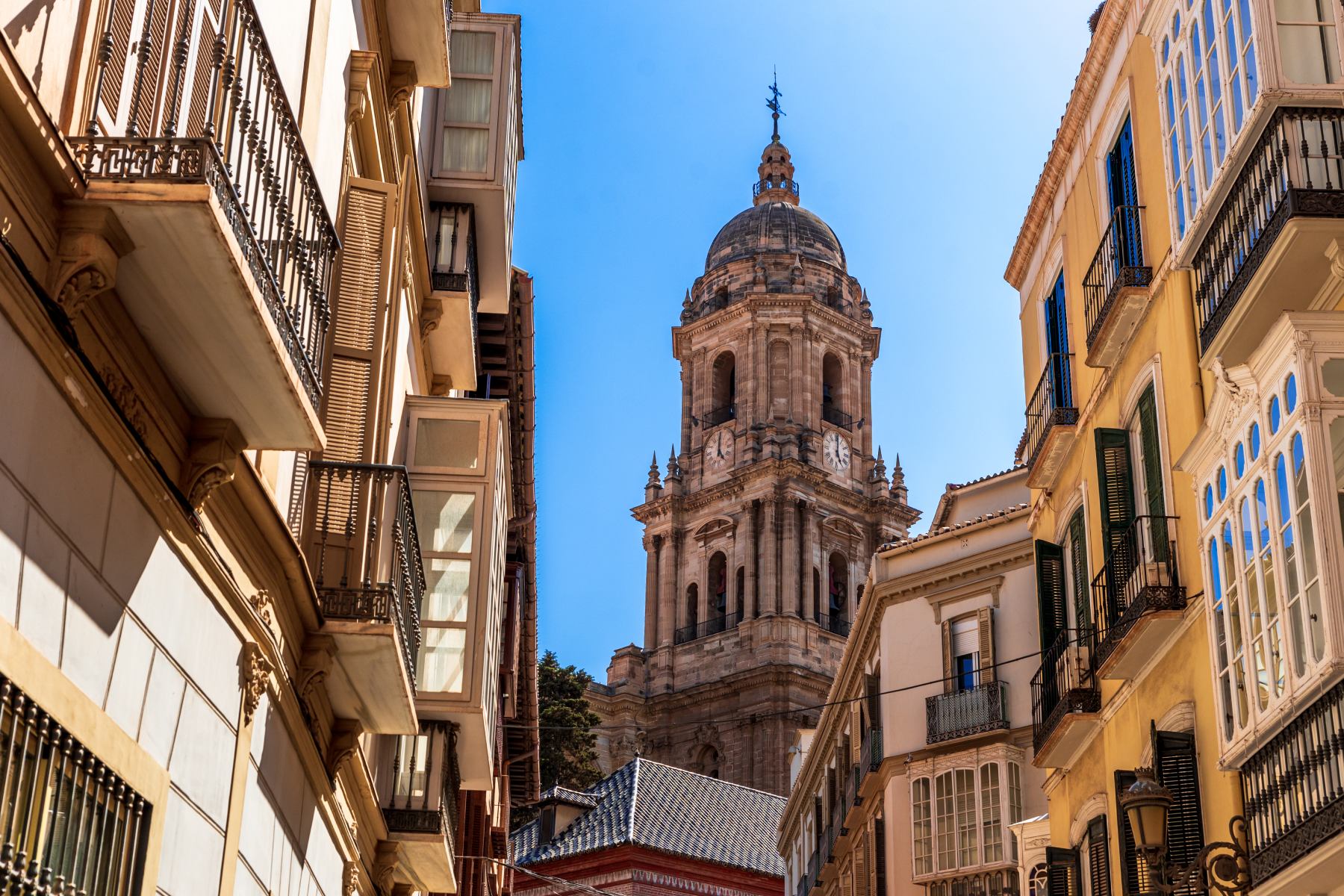
As of 2023, more than half (56%) of Spain’s population identify as Catholic and 18.5% of them are practicing Catholics. However, more than a third (39.8%) are atheist, agnostic, or have no religion and 2.7% identify with another one.
The national language in Spain is Spanish – which is also called Castilian – and around 94% of the population speaks it as a first or second language. Spain also has a number of regional languages, including Catalan, which is spoken by 15.7% of Spaniards, Galician (5.7%), and Basque (1.2%). English, on the other hand, is not as widely spoken as in many other parts of Europe. In fact, Spain ranks 33 on the 2022 English Proficiency Index (EPI). Other languages spoken in the country include French, Romanian, Italian, Portuguese, German, and Arabic.
Although Spain has a strong conservative Catholic tradition, it is one of the most liberal European countries in terms of attitudes. For instance, it was one of the top-scoring nations in terms of its understanding of difference, belief in freedoms, and anti-discrimination, in the 2021 Eurobarometer Values and Attitudes Survey. The country is also politically diverse, with support for left, right, and center, which shows in the 2023 general election polls.
Moreover, Spain is considered to be one of the world’s most LGBT-friendly countries and ranks 10th out of 49 European nations on the 2023 IGLA-Europe Rainbow Map.
Regional and national identity
Generally speaking, Spanish people have a strong sense of regional identity, particularly in Catalan and Basque regions. Indeed, an impressive 84% feel attached to regional identities compared to the EU average of 69%. That said, both national identity and European identity are also stronger in Spain than the EU average.
In terms of class, Spain has a small upper class (which includes a Royal Family), a large middle class (which accounts for almost half of the population), and a smaller working class. Meanwhile, the Roma population (Gitanos) is a marginalized group in Spain that has faced centuries of discrimination.
Spanish gender roles and norms
The Spanish Constitution states that men and women are equal before the law and the country scores fairly well in terms of women’s rights and gender equality.
The post-Franco era also saw a big decline in macho and sexist attitudes towards women in Spain. Consequently, it now ranks in sixth place in the EU in the 2022 Gender Equality Index and 17th in the World Economic Forum’s 2022 Global Gender Gap Report.
However, despite the fact that traditional family roles are not so prevalent these days, women still find themselves far more burdened with unpaid care and domestic duties. Moreover, some gendered behaviors, such as men being expected to pay the bill in restaurants, are still common in Spain.
Women in the workplace
Women make up almost half (47.1%) of the Spanish workforce, which is slightly higher than the EU and OECD averages. They also have strong employment rights. That said, the gender pay gap does still exist, although it is below the EU average (8.9% compared to 12.7% in 2021).

Moreover, while female expats can generally expect to receive fair and respectful treatment in the workplace in Spain, there is still evidence of sexism and harassment. However, the Spanish government’s Strategic Plan for Effective Equality 2022-25 aims to tackle this as well as gender-based violence.
How do Spanish people meet and greet?
The typical Spanish greeting consists of the double cheek kiss (left then right) between two females or a male and a female who know each other fairly well. Men who are familiar with each other, on the other hand, tend to go for a hug and/or a handshake. A handshake will also suffice in formal situations such as a business meeting or a first-time encounter.
Addressing others
Similar to other countries, friends, colleagues, and close acquaintances tend to address each other by their first names. However, when speaking to older people or those in formal situations, it is good Spanish etiquette to use surnames together with don/dona (for older people) or senor/senora/senorita (in formal situations). Buenos dias (good morning) or buenos tardes (good afternoon) are also suitable greetings for everyone to use. You can also say hola (hello/hi) as an informal greeting.
Punctuality
If you have arranged to meet someone in Spain, don’t be surprised if they turn up several minutes late. After all, the Spanish are famous for their relaxed attitude towards timekeeping, regardless of whether it is for business or pleasure purposes. As a result, meetings often start and finish late. However, you shouldn’t take this as a cue to turn up late to a job interview or important meeting as this will be seen as rude.

Spanish people are generally very hospitable and will welcome others into their homes. Indeed, the saying mi casa es tu casa (my house is your house) is very popular. Therefore, you won’t be expected to call ahead if you want to visit someone. Having said that, you might want to do so if you are coming from afar to avoid any wasted time. It is also worth noting that while Spanish people are happy to invite people into their homes, it is more common to socialize elsewhere in places such as restaurants or bars.
Conversation and communication
The Spanish communication style is best described as direct but friendly. People are generally very talkative and polite, so don’t be surprised if someone strikes up a conversation with you while you are sitting on the bus or shopping in your local supermarket.
Body language
One thing you will quickly notice in Spain, especially if you move there from northern Europe, is that people stand much closer to each other and are fairly tactile. Therefore, don’t expect too much personal space when drinking in bars or traveling on public transport.
Even in more formal settings, people might gently touch each other on the arm, back, or shoulder. As mentioned, hand gestures are also common, although these tend to be more general movements that accompany speech, in contrast to countries such as Italy where people often ‘speak with their hands’.
Eye contact is also very important when communicating in Spain, and maintaining it shows that you are interested and paying attention. Conversely, it is bad etiquette in Spain to start looking around at other things when someone is speaking to you or, even worse, start checking your mobile phone.
Hand gestures
As mentioned, the Spanish language is often accompanied by plenty of hand gestures. Indeed, people can get quite animated during a conversation and will often start speaking loudly and gesticulating more wildly when they get excited. Therefore, if you see two Spanish people yelling at each other in the street, don’t immediately assume that they are getting cross with each other. On the contrary, they are just as likely to be reaching a key point in a pleasant chat.
It is also worth noting that if someone interrupts you when you are speaking, they are usually just showing enthusiasm rather than being rude. So try not to take offense.
Although Spanish people are not overly familiar, they are generally quite open with strangers. It is also common for people to pay compliments and use terms of endearment to express friendliness. For example, they might refer to each other as mi alma, which translates as my dear/my soul/my sweet.
Topics of conversation
Similar to many countries, good conversation topics in Spain include the weather, sports, art, food, and drink. Many Spanish people are very proud of their region so this is always a good subject if you have learned some local knowledge. Just make sure you know what you are talking about and don’t confuse the regions otherwise you will be left red-faced. You can also try learning a few common Spanish phrases to slide into conversation and impress the locals.
Notably, unless you are chatting with very close friends or someone else brings it up, you should avoid discussing politics. Although Spanish people are generally quite extroverted, they also tend to be modest. Therefore, boasting about your achievements or wealth will not go down well in the country.
Spanish humor
Spanish humor can be quite blunt and risqué. Therefore black humor, slapstick, and jokes or stories that play on social tensions tend to go down well. Subtle and gentle forms of irony and sarcasm, on the other hand, are not quite as popular in Spain.
Much of the thrust of Spanish humor comes from the country’s attitude towards jeopardy. Therefore, people getting themselves in a tight spot, sometimes dangerously so, can be a source of great amusement in Spain. This explains the popularity of the annual fiesta where bulls run loose in the streets of Pamplona, knocking daredevil humans out of the way. Similarly, a fireworks display gone wrong is likely to cause hilarity.

Spanish humor also relishes class tensions, siding with the underdog at the expense of the pompous or self-entitled. However, the Spanish are less inclined to mock other national stereotypes as say, the British and the French, or the Dutch and the Germans. That said, the village of Lepe in Andalucia has a long history of being the butt of Spanish jokes. Therefore, if people want to cast a ‘fool’ in a joke or routine, they usually look no further than there.
Notably, the Spanish are also appreciative of a skillfully told comedic story that might stretch out for many minutes and not involve too many zingers along the way – as long as the punchline at the end is worth the wait.
Typical Spanish clothing
Generally speaking, Spanish people take a lot of pride in their appearance. Therefore, you won’t see many tracksuits (other than at the gym) or scruffy or dirty clothes. That said, plenty of people wear sandals or trainers, especially in the warmer months.
Notably, day-to-day clothing tends to be stylish rather than flashy. Casual clothing staples include jeans, long shorts, skirts, dresses, shirts/blouses, jackets, and smart t-shirts.
Spanish people also tend to prefer a good fit. Indeed, loose-fitting, baggy attire is usually only seen in younger people who follow specific fashion trends.
It is also better to limit your beachwear to the beach. In fact, some Spanish towns now have rules about wearing swimwear in public places. And while you may see men walking around bare-chested in seaside areas, it is not a common sight in built-up cities.
When it comes to formal wear, men typically wear suits, light shirts, and smart shoes, while women opt for a skirt or trouser suit. People tend to dress formally when they go to work or attend appointments or church. They also like to dress up elegantly when going to a restaurant, theater, or bar in the evening.
What is the dining etiquette in Spain?
Dining is a big social occasion in Spain and people often eat out or invite family and friends over for meals. The Spanish also like to stretch mealtimes out and incorporate lots of chat. This is evident in the popular tapas culture, where people socialize around a series of small shared dishes. This contrasts greatly with the fast food culture that has developed in many other countries.

It is also worth noting that mealtimes in Spain can often run late. Indeed, people often eat dinner at around 21:00 or 22:00. However, if you take into account the culture of la sobremesa (sitting and talking for an hour or so after the meal has finished), dining can be a late-night affair.
Here are some common rules for dining in Spain:
- Wait to be seated by the host if there is one
- Keep your hands visible at all times and keep your elbows off the table
- Avoid checking your phone during the meal
- Place your knife and fork parallel to each other on your plate once you have finished eating
- Take small portions of food and do not leave piles to waste. Spanish people take their food very seriously and wasting it can be viewed as both insulting and irresponsible.
- Use any bread provided to soak up the sauces or juices that are left on your plate
Spain uses the continental style when it comes to dining utensils. Typically, the host will offer the first toast by saying salud! Guests can then offer further toasts later on during the meal.
How do Spanish people socialize?
If you move to Spain, you will be pleased to discover that people have plenty of time to enjoy leisure activities and socializing. Although the traditional siesta is gradually becoming a thing of the past, many people still consider the hours between 14:00 and 16:00 as a time for relaxing. They might choose to have a long lunch, if they prefer not to take a mid-afternoon nap.
There are plenty of places to socialize once the working day is over, too. These include restaurants, cafes, bars, galleries, museums, theaters, cinemas, and watching or participating in sports. There are also many festivals and events throughout Spain during the year, so it’s a good idea to see what’s on in your local area.
Notably, drinking alcohol is a large part of socializing in Spain, and you are likely to find bars in every town and city across the country. Indeed, around 60% of locals say they go out at least once a week to enjoy a drink with friends, family, or coworkers. That said, you are unlikely to witness a lot of excessive drunkenness in public, despite the country having the 9th highest alcohol consumption level in the EU.
Dating and relationships in Spain
Dating norms in Spain are similar to many other countries. For example, first dates tend to take place in venues such as bars, restaurants, cinemas, or parks. Online dating has also grown in popularity, with a number of websites connecting singles in the same area.
While Spanish people are generally friendly and affectionate, they can also take their time to open up or become intimate with a significant other. It is also more common in Spain for women to take the lead and ask men out on a date.
Family is very important in Spanish culture, which means that you can expect to meet potential in-laws and other relatives fairly quickly if your relationship becomes serious. That said, the marriage rate in Spain is steadily declining, with around 3.1 marriages per 1,000 inhabitants in 2021. This was below the EU average of 3.9.
Interestingly, marriage doesn’t seem to be a priority for same-sex couples either. Indeed, despite gay marriage being legalized in 2005, only 2,158 couples tied the knot in 2021 which – aside from 2020 – was the lowest rate since 2016.
What occasions do Spanish people celebrate?
There are numerous festivals in Spain, including local and regional ones that are celebrated in different parts of the country. Apart from religious holidays such as Christmas and Easter, there are important annual events including Spain’s National Day (Fiesta Nacional de España) on 12 October.
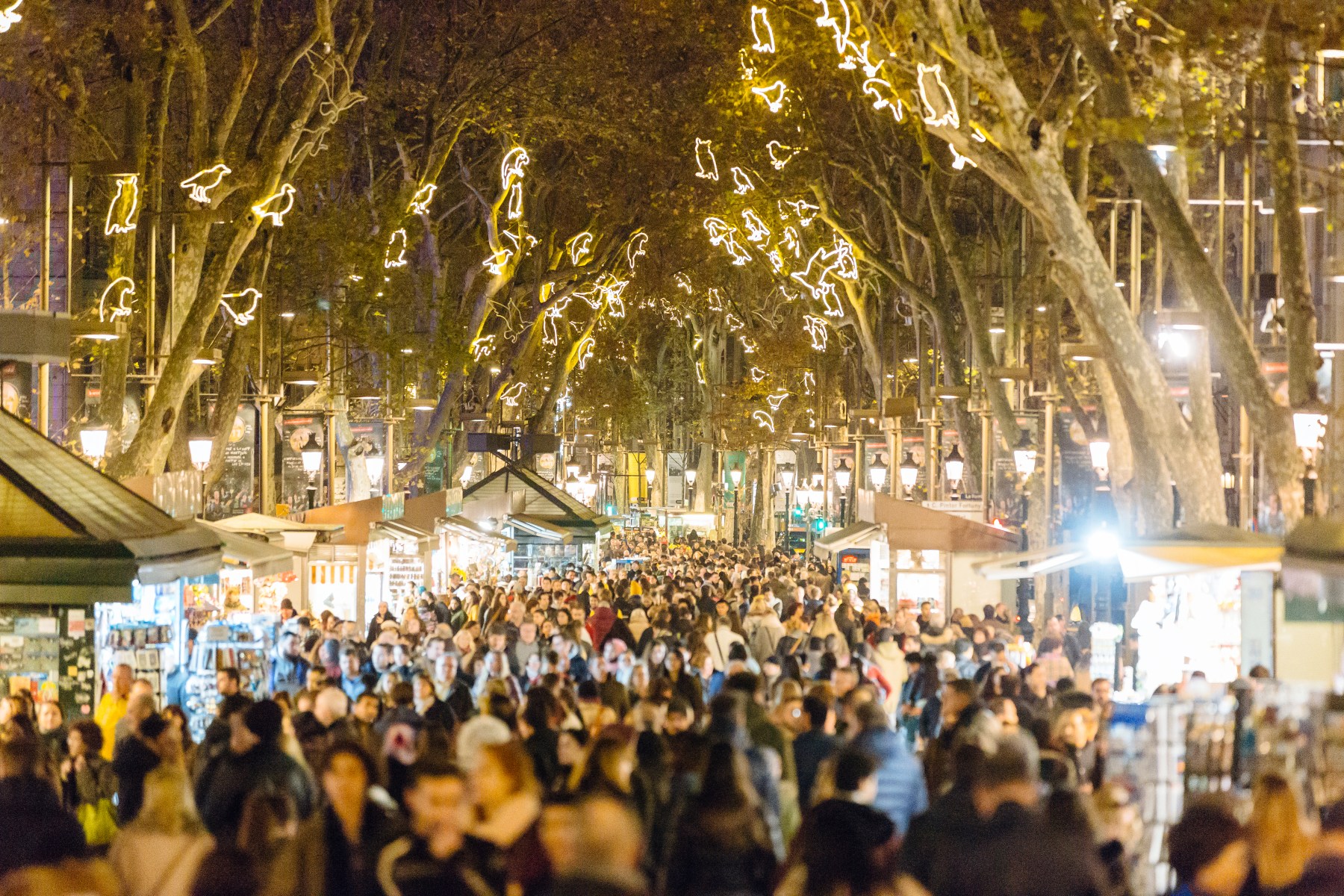
In Spain, Christmas (Navidad) begins as early as 8 December with Immaculate Conception Day (Día de la Inmaculada Concepción). However, celebrations don’t truly begin until 22 December with the Christmas lottery (El Gordo) and 24 December when families gather together and enjoy a traditional festive meal and exchange gifts. Christmas ends on 6 January with Three Kings Day (Fiesta de los Reyes) when families gather once again and many towns and cities across the country have parades.
Notably, you can visit numerous Christmas markets during the festive season in Spain. These are great places to buy gifts and watch the nativity scene.
Easter is known as Holy Week (Semana Santa) in Spain and lasts for seven days leading up to Easter Sunday.
In addition to national and regional festivities, people in Spain celebrate a range of personal occasions such as birthdays, wedding anniversaries, and passing important exams.
Birthdays
The way people celebrate birthdays in Spain is similar to many other countries. They typically receive cards and gifts and enjoy a party or meal with friends or family. However, people don’t always celebrate their birthday on the actual day and may wait until the following weekend if it falls on a weekday.
Notably, it is customary in Spain for the person whose birthday it is to pay for the meal or drinks. So, if you are trying to save money, you might want to keep quiet about your special day! Another thing to note is that many Spanish people have two birthdays: one on the day of their birth and the other on the day of the saint with whom they share a name.
Big birthday celebrations involving gifts and parties are more common for children. These are usually held in the child’s home or in a suitable nearby venue such as a community hall. Children’s parties typically involve a chocolate birthday cake and traditional Spanish food such as paella or tapas. Notably, the 15th birthday (Quinceañero for boys and Quinceañera for girls) is a landmark for children in Spain.
You can wish someone a happy birthday in Spanish by saying – or singing – Feliz Cumpleaños.
Giving gifts
It is good Spanish etiquette to bring a small gift when visiting someone’s home. The most suitable gifts are ones that can be shared, such as wine or chocolates.
Notably, flowers are less common for this reason. However, they are still acceptable. That said, if you do turn up with a bouquet, you should avoid giving roses (which have connotations of romance) and chrysanthemums (which have associations with death).
It is also worth noting that Spanish people tend to put as much effort into the wrapping as they do the actual present. Therefore, you can expect to see plenty of beautifully presented gifts.
If you receive a gift in Spain, you should also open it immediately in front of the sender. That way you can express your gratitude in person. Notably, it is not common to give gifts at business meetings in Spain.
Spanish business culture
Spanish business culture is typically less formal than in many other European countries, and there tend to be fewer organizational rules and procedures.
The work environment is generally quite relaxed and not too fast-paced. As a result, employees can expect to enjoy a relatively good work-life balance. However, power and decision-making usually only involves top-level managers or sometimes just a sole owner or director.
Many Spanish businesses are small or medium-sized companies that are run by families and have a strong sense of tradition as well as a tight local network. In big cities such as Madrid and Barcelona, on the other hand, you will find larger global corporations which have a different work culture. For instance, they may have less of a hierarchical structure and encourage more collaborative planning and decision-making.
Shopping and services in Spain
Shopping is a popular pastime in Spain and most cities and towns have high streets, shopping centers, and markets where you can buy everything from clothing and household goods to groceries and more.
You can also find larger shopping malls in Spain’s bigger cities. These tend to offer big name brands as well as small independent retailers and even department stores.
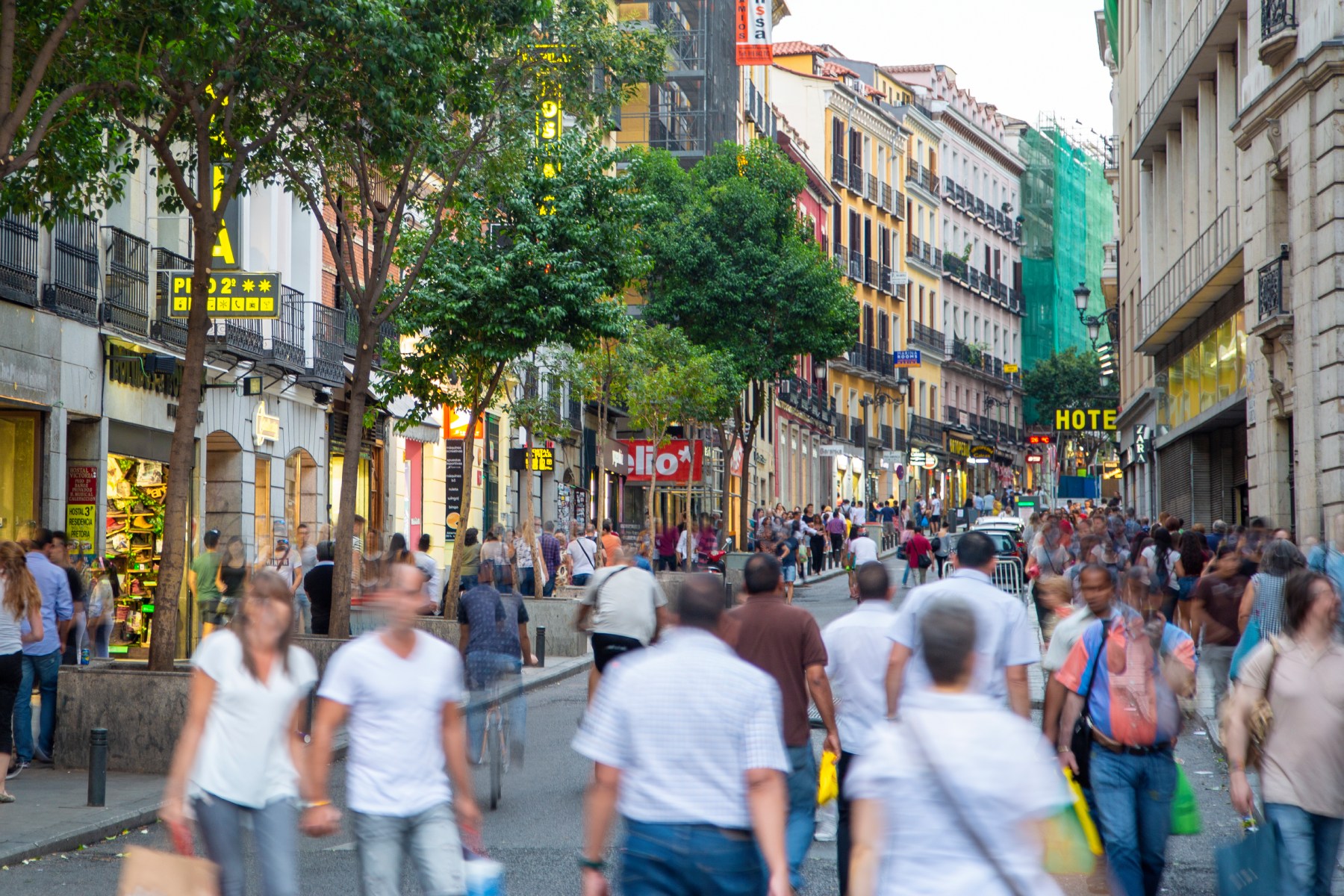
On the whole, customer service in Spain is quite friendly. That said, it can vary depending on where you are in the country and the size and nature of the business. For example, some service may not always come with a big smile and a wish that the customer has a nice day. Shoppers may also find that staff can sometimes be more direct and less “polished” than they are in some other countries.
However, research shows that 88% of Spanish businesses measure their customer satisfaction compared to a global average of 87%. The Spanish government also introduced a Customer Service Services Bill in 2023 that requires all companies to provide human customer services during working hours. This is extended to 24/7 for large firms, utilities providers, telecommunications companies, and other basic services providers. Moreover, companies need to respond to all customer complaints within one month.
Although you will rarely see an organized queue in Spain, people are generally polite and usually don’t push in front of others. While there may be no visible queues, most places operate on an informal system where customers know when it is their turn.
Tipping in Spain
Tipping is not compulsory in Spain and is entirely at the discretion of the customer. Notably, many services, such as restaurants, include a service charge in the final bill. This is listed under servicio incluido. That said, even if service is not included, you won’t be expected to leave a tip.
If you do choose to leave one, however, the typical amount is between €5 and €10. It is common for people in Spain to leave a few coins or round up a bill if they want to tip the waiter. Some establishments also have a tipping jar for this purpose. Alternatively, you can give money directly to staff.
It is common to tip the following services in Spain:
- Cafes and restaurants
- Hairdressers and beauticians
- Hotel porters
- Taxis
Regional variations
Spain is made up of 17 autonomous communities – including two autonomous cities – which each have strong regional identities. In fact, in most parts of Spain, regional identity is just as important as national identity, if not more so.
Local identity is strongest in Catalonia and the Basque region. Bigger cities such as Madrid and Barcelona, on the other hand, have more of an international feel due to their large immigrant populations.
Notably, each autonomous region in Spain has its own unique twist on Spanish etiquette, culture, and traditions, as well as a fair degree of political autonomy.
Many regions also have their own language, or distinct Spanish dialect. In Catalonia, for example, 36% of residents speak Catalan as their first language. Therefore, if you are planning on moving to Spain, it is important to research the region and city you will be living in.
Useful resources
- La Moncloa – outlines the Spanish Constitution of 1978
- Spain is Culture – provides an overview of the various festivities and traditions in Spain
- SpanishPod101 – provides Spanish etiquette do’s and don’ts
